For a while it looked as if a plan to turn fruit waste into electricity might bring light for a giant Nigerian market – but then, like so many other power plans, nothing happened. When will renewables really come on line?
By Olajide Adelana
Two kids run across the road shouting, “Thief! Thief!” as a big rat races away into a nearby hole for refuge. It has rained and the drains are clogged with waste: the water pools on the road and fills the potholes along the thoroughfare leading to Lagos’s famous Ikosi fruit market.
One of the largest of its kind in the city, the market is a popular spot for trading vegetables and fruit like pineapples, bananas and plantains. But here, like most parts of Nigeria, there is rarely a steady power supply – according to the World Bank, 75 million people in a country of 186 million don’t have access to electricity. “The light issue is a big one here. When there is no light, we have no choice but to close early, especially when we are witnessing shorter days and longer nights,” says market trader Ajose Abosede.
A few metres away is a large abandoned biogas plant, tucked away in a corner of the market that overlooks a field littered with fruit waste. This was supposed to be the answer for Abosede and the other stallholders. Lagos, the biggest megacity in Africa, generates more than 13,000 tonnes of garbage a day, of which 50% is organic waste, says Lanre Gbajulaye of the Lagos State Waste Management Authority (Lawma). A huge amount of that waste comes from more than 30 markets – and therein lies surprising potential. Experts believe Lagos can be energy self-sufficient if it can tap into the latent power of its organic garbage. But it’s taking a little longer than they hoped. In 2013, the state government partnered with Midori Environmental Solutions (MES), a Lagos-based environmental company, to explore the possibilities of converting waste from the market into electricity using a biogas system. Food leftovers would be ground into paste and then broken down by bacteria in a biodigester, releasing biogas in the process.
Once filtered, the gas would fuel a generator and produce enough electricity for up to 50 stalls and lock-up shops. The market produces 5,000 tonnes of waste a day – and the traders were more than happy to give this to the generator instead of paying to have it taken away.
Banana seller Saliu Adenekan thought at first that the plan was a joke. “As old as I am, I have not seen or heard of how waste is used to generate light. I know that there must have been a way that people abroad treat and use their waste, but I have no idea we can do [the] same here in Nigeria, to say nothing of it working in Ikosi,” he says. For a while it looked as if it was all going ahead. MES was given a licence to build a “low-technology” facility, for what would be a flagship project – a symbol of the state’s innovative drive to solve its energy crisis, applauded by local and international observers. Not long after it was built, the biogas plant was up and running. At last, there was light.
Nigeria’s energy system is a conundrum that no one seems able to solve. Despite having the largest gas and oil reserves in Africa, the country struggles to supply its power plants with adequate gas to generate electricity, and regularly appears to run out of petrol. On 31 March 2016, at exactly 12.58pm, Nigeria’s power grid collapsed and not a single megawatt of electricity was generated for three hours. This was unprecedented.
The country’s three-pronged energy infrastructure consists of generation companies, distribution companies (DisCos) and the Transmission Company of Nigeria (TCN), now operated by a mixture of the state and private companies after a privatisation drive in 2014, which some believe was bungled. The problems have been exacerbated by alleged financial mismanagement of some of the distribution companies – to say nothing of the frequent vandalism of gas pipelines in the country’s oil-rich Niger Delta by local militants fighting for resource control. According to Aliyu Wabba, president of the Nigeria Labour Congress, the deplorable state of the power sector has stifled Nigeria’s economy. Industries have not been thriving, which in turn inhibits employment opportunities for young Nigerians. “The economy continues to grow without jobs, bringing benefits to only a few. We demand an economy that provides In 2014, landmark reforms allowed private sector participation in the energy sector, particularly in power generation and distribution, but many believe the process has been deeply flawed, due to factors like corruption or poor leadership, and there have been calls for a full audit of the whole process.
The government failed to check that investors who bought distribution companies were appropriately capitalised, or that they understood the technology of the enterprises they would own, says economist and former finance minister Kalu Idika Kalu.
Yemi Oke, associate professor of energy and electricity law at the University of Lagos, believes the problems are largely man-made. “Some of the distribution companies are owned by corrupt and wealthy people who thought there is free money to be made in the power sector. They borrowed money and bought the distribution companies only to say that they won’t incur the liabilities of the company,” Oke says at his office in Lagos.
According to Oke, the nation’s recent economic meltdown reveals that the private investors were neither as technically or as financially sound as they should have been before taking over as distribution companies. And when the price of oil tanked – and with it the value of the naira, Nigeria’s currency – the problems only multiplied. £60m – in the second half of 2015 to N66.99bn – £138m – in the same period in 2016).
As a short-term measure, the Nigerian government has decided to develop an incremental power strategy that would aim to sort out the human and administrative challenges bedevilling the power sector, while also harnessing every available megawatt of power. This is where ideas like generating energy from garbage come in.
The government seems to be finally recognising the immense renewable potential in Nigeria. One report found that Nigeria’s concentrated solar thermal power potential stood at over 427,000MW – about 85 times more than the present level of power generation in the country. And the new emphasis on renewable energy has already started yielding results. In 2016, US$2.5bn (£1.85bn) was committed to 14 renewable energy projects by private investors, with the intention of adding a combined 1,000 megawatts to the national grid. So is the huge amount of waste in Lagos state the key to generating some of this electricity? Banana trader Adenekan’s excitement vanished a few months after work had begun on the Ikosi market biogas generator, when the government asked the contractor to hand it over. Lawma took over the initiative with the idea that it would be replicated in other markets across the state. That turned out not to be the case. A change in leadership at the waste management body saw the project shut down and abandoned. Three years on, the facility has ceased to operate and Ikosi fruit market has gone back to how it used to be: a community of traders, waste and pests competing for space in darkness.
But they have not given up. “Waste is money,” says Ajani Ojo. Nicknamed the “waste converter” by his colleagues, Ojo is a plantain trader who now makes his cash from setting up low-tech biogas facilities for people. He says he learned all he knows about converting
waste to value from MES, the contractor who handled the Ikosi project.
Ojo wants the government to resuscitate the project. “When the facility was working, waste scattered all over the market was reduced, especially around the banana section,” he says, pointing to a field near the facility. “Apart from that, we didn’t have to pay the waste collector money to take our waste. We gave it up for free to the facility to generate electricity for our use.”
Unfortunately, although some steps are being taken to deal with the waste, there are no signs of plans to reopen the plant.
For Ojo, as for many, it is clear that the government should pursue this path more wholeheartedly. He believes that there is a need for better appreciation and commitment to solving two problems using a simple technology. With the realisation of the huge opportunities that renewable energy presents, Nigeria should apply itself to harnessing these opportunities as part of a mosaic solution to its energy crises.
Even Ojo, who has seen the problems of converting waste to biogas, is convinced this is the right path for the country. “My eyes have been opened,” he says. “And the government’s eyes should be wider.”
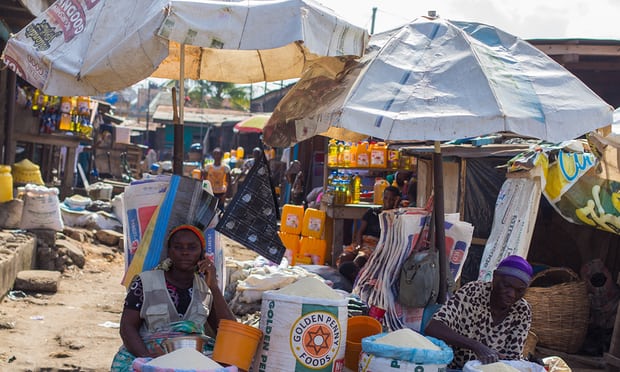
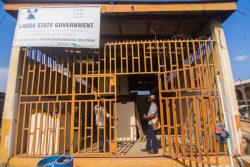


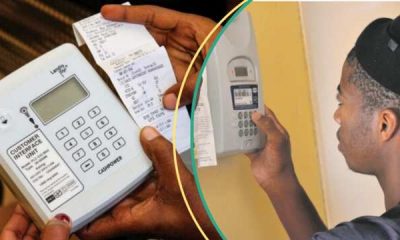

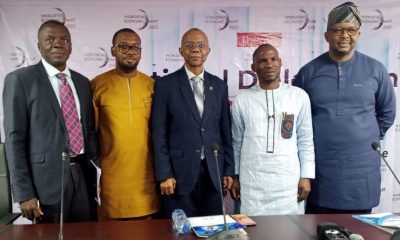





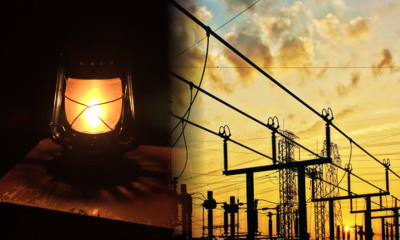


 Featured1 week ago
Featured1 week ago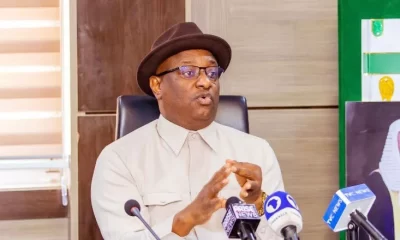
 Aviation1 week ago
Aviation1 week ago
 Business4 days ago
Business4 days ago
 Aviation6 days ago
Aviation6 days ago
 Business3 days ago
Business3 days ago
 Featured1 week ago
Featured1 week ago
 Education4 days ago
Education4 days ago
 Crime4 days ago
Crime4 days ago
